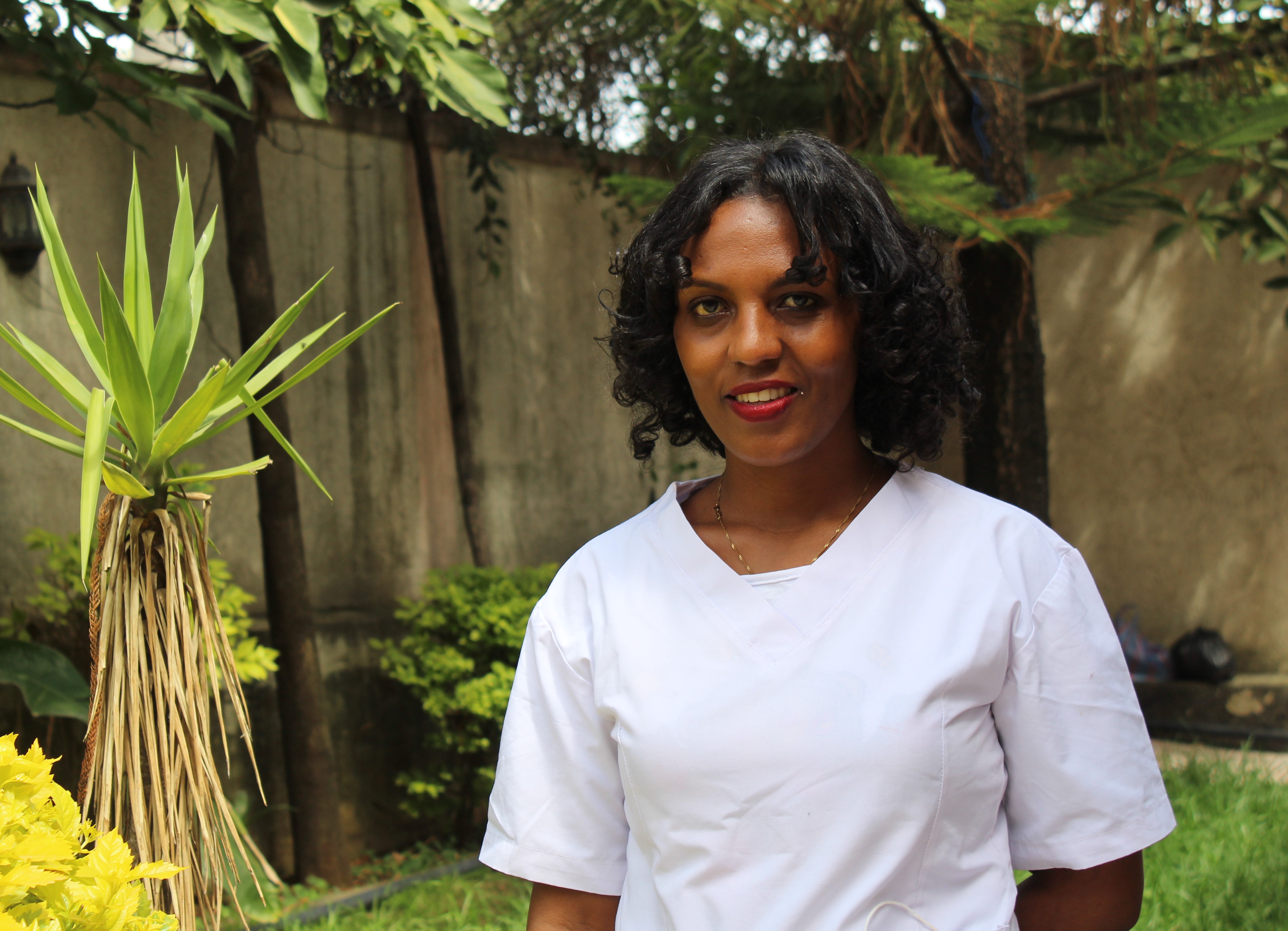From Where I Stand: "Due to COVID-19 people were not going to the police"
Simret Tesfaye is nurse at the Association for Women's Sanctuary and Development, a non-profit organization in Addis Ababa, Ethiopia, that manages six shelters for survivors of gender-based violence. Currently, she is working at the Transitional Shelter that opened in April 2020 with support from UN Women.Date:

![]() “Since the first case of COVID-19 was reported in Ethiopia, one-stop crisis centres and shelters haven’t been able to support survivors because of the lack of isolation rooms for newcomers and insufficient human resources and personal protective equipment. To fill this gap, a transitional shelter was opened to serve as a space where survivors could stay during the quarantine period. Once the survivors are tested for COVID-19 [and they are negative], they can be transferred to existing shelters.
“Since the first case of COVID-19 was reported in Ethiopia, one-stop crisis centres and shelters haven’t been able to support survivors because of the lack of isolation rooms for newcomers and insufficient human resources and personal protective equipment. To fill this gap, a transitional shelter was opened to serve as a space where survivors could stay during the quarantine period. Once the survivors are tested for COVID-19 [and they are negative], they can be transferred to existing shelters.
Due to COVID-19, people were not going to the police immediately after the incident, in time to collect medical evidence and press charges against the perpetrator. People thought there such services were not available during the pandemic. . As a result, many rape cases went unreported and many women have had to endure repeated violence. This has made our work harder.
Working with survivors of violence, practicing my nursing profession here, makes me happy to be part of efforts to restore dignity to their lives.
Before I joined the Association for Women's Sanctuary and Development, I didn’t know [the extent and grave nature of] violence against children, women and girls being perpetrated in my country. Working here made me realize the issue is multi-faceted and we need to work hard to address that.
Due to COVID-19, some of the services we provided, like skills training, have been interrupted. And we need to do our job with extra care and observe all the safety measures. Transport is arranged for us to come to work and necessary Personal Protection Equipment (PPE) are provided. We were also trained by the Ministry of Health on infection prevention and precautionary measures to protect residents of the shelter and ourselves.
There is a State of Emergency in Ethiopia and majority of workers are staying home. Working while other members of my family are staying home, I feel like I need to be extra careful not to bring the virus to my family.
I know my job is hard, but I consider myself lucky to have made an impact in this area.”
The Association for Women's Sanctuary and Development provides a range of vital services for survivors of violence, such as counselling, training, legal aid and medical care, in addition to safe homes. UN Women supports the Associationas part of a project “Preventing Violence Against Women and Girls and Delivering Essential Services to Survivors in Ethiopia”through polled from Denmark, Sweden, Norway and The Netherlands. The programme has facilitated the establishment of two shelters in Adama, Oromia region and now another shelter in Hawassa. As violence against women spikes around the world during COVID-19, supporting organizations like this is more critical than ever before.